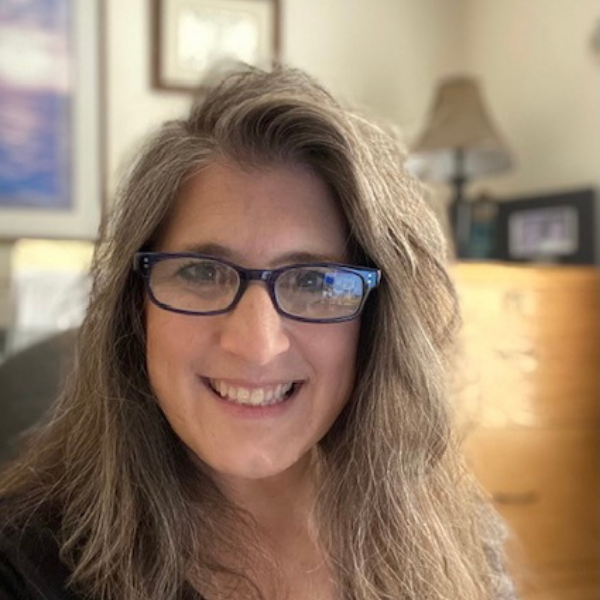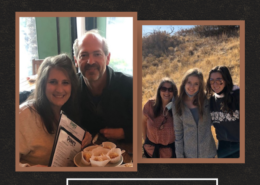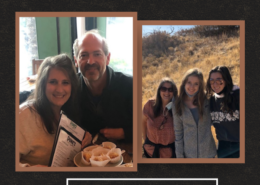Lisa Hatfield
Myeloma Empowerment Lead
Lisa was diagnosed with Multiple Myeloma at the age of 49. After an MRI revealed a large plasmacytoma on her spine, further testing confirmed her myeloma diagnosis. Lisa holds a Master of Science degree in Health Science/Health Policy and two Bachelor of Science degrees, one in Psychology and one in Legal Studies. Her research-heavy education has proved helpful as she continuously conducts research to advocate for herself and for others diagnosed with myeloma. Her myeloma is currently in “hibernation,” as she continues daily Revlimid maintenance therapy. Though she does not enjoy the effects of cancer and medications, she does enjoy and appreciate the new perspective it has given her to savor the moments with her husband, two teenagers (who have nicknamed her “malignant ninja”), two dogs, extended family, and friends. Lisa’s work experience in the health care industry, along with her diagnosis, have led her to fiercely advocate for myeloma patients with regard to assembling a cancer care team, understanding diagnosis and treatments, and accessing adequate care for all. She is excited to work as a Myeloma Empowerment Lead at PEN and hopes to provide support and hope for myeloma patients.
FAQs
What type of cancer and stage?
A: Multiple myeloma. Stage III (Durie-Salmon); Stage I (R-ISS). Myeloma has stages I-III.
What was your treatment path?
A: Initial treatment included radiation to shrink plasmacytoma (tumor) and vertebroplasty (spine surgery) to stabilize collapsed spine and reduce risk of spinal cord injury (at MD Anderson in Houston), followed by chemo regimen of KRd (Kyprolis, Revlimid, dexamethasone) for 6 months. Chemo was completed at local cancer center in Boise, under the direction of Houston oncologist. Re-staging and stem cell harvest/collection occurred at 6 months at SCCA in Seattle. Opted to postpone autologous stem cell transplant until first relapse and began maintenance therapy of Revlimid 10mg daily for 18 months, then (current regimen) Revlimid 10mg daily for three weeks on, one week off.
Additional current therapy includes supplemental medications to ease side effects of Revlimid, weekly physical therapy to strengthen spine and improve gait, occasional social work appointments to discuss how to best manage life while living with cancer, and weekly “Sunday night dinners” with our friends that we couldn’t live without.
As a PEN Empowerment Lead, what are your interests and how are you helping other patients?
A: As a PEN Empowerment Lead, I am interested in providing support, education, advocacy, resources, and hope to those diagnosed with Multiple Myeloma (or any cancer).
I hope to offer support throughout the cancer process, but especially upon diagnosis, when the shock can be crippling and devastating. There is no “one-size-fits-all” treatment for myeloma. There are many options and just as many opinions on the best treatment. The diagnosis and flood of information is exhausting, confusing, and overwhelming.
Myeloma is a complicated and challenging disease. I believe the most important resource is a myeloma specialist. In working with myeloma patients and using resources provided by a variety of myeloma organizations, I have helped others seek out the care of, or at the very least, an expert opinion from, a myeloma specialist. Myeloma specialists typically see only myeloma patients and are well-versed on the complexity of this disease and better understand current therapies, clinical trials, and how to “customize” treatment based on an individuals’ myeloma characteristics.
Advocacy comes in many forms, from creating awareness to equal and adequate access to legislation. I am interested in all of those areas and have been involved with conducting research for Cancer Drug Parity legislation, to help those who are prescribed oral cancer drugs receive similar benefits as those receiving intravenous (IV) cancer drugs, and locating resources to assist those who do not have the financial resources to access a myeloma specialist or their prescribed treatment.
Myeloma patients have small, but strong, communities and networks to lean on for help, including organizations such as PEN. Myeloma experts, scientists, and patients are passionate to find a cure. I believe this is possible when we all come together to build up these communities and support this common goal.
How has cancer affected your life?
A: Big question. Until there is a cure for myeloma, I have learned (correction: I am still learning) how to integrate myeloma into my life rather than integrating my life into myeloma. It’s not a “new normal;” nothing about it feels normal. It’s a new perspective. A new life.
Where can you find Lisa?
Email: lhatfield303@gmail.com








